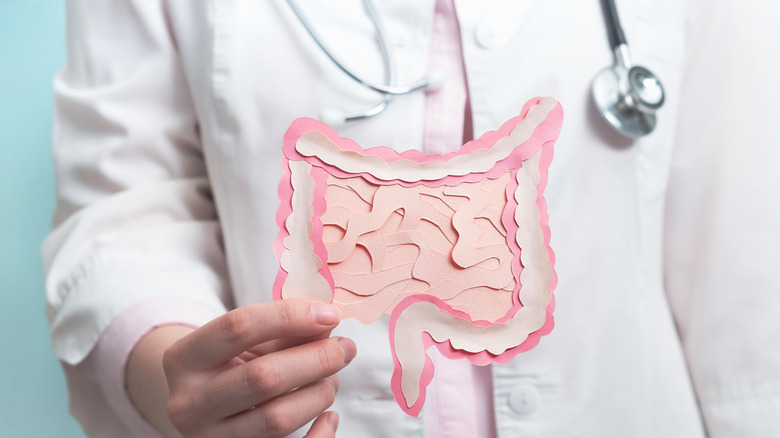Hormones are powerful chemical messengers that regulate almost every aspect of a woman’s physical, emotional, and reproductive health. From your mood and energy levels to your menstrual cycle and metabolism, balanced hormones are essential for feeling your best.
Unfortunately, many women experience hormonal imbalances at some point in their lives—often without even realizing it. The good news is that with the right knowledge and lifestyle choices, it’s possible to support and restore hormonal balance naturally.
In this article, we’ll explore the causes and symptoms of hormonal imbalance, how to identify common hormone-related conditions, and the natural steps you can take to improve your hormonal health.
🔄 What Are Hormones and Why Do They Matter?
Hormones are chemical messengers produced by glands in your endocrine system. In women, key hormones include:
- Estrogen
- Progesterone
- Testosterone
- Thyroid hormones (T3, T4)
- Insulin
- Cortisol
- Melatonin
These hormones work in harmony to regulate:
- Menstrual cycle and fertility
- Sleep patterns
- Mood and mental clarity
- Weight and metabolism
- Skin health
- Libido
- Energy and stress levels
Even a small imbalance can lead to a wide range of symptoms.
⚠️ Signs and Symptoms of Hormonal Imbalance in Women
Hormonal imbalance doesn’t always present in the same way for everyone, but common symptoms include:
- Irregular or missed periods
- Severe PMS or mood swings
- Acne or oily skin
- Fatigue or brain fog
- Unexplained weight gain or loss
- Hair thinning or excessive hair growth
- Low libido
- Sleep disturbances
- Anxiety or depression
- Hot flashes or night sweats (in menopause)
🩺 Common Conditions Linked to Hormonal Imbalance
1. Polycystic Ovary Syndrome (PCOS)
Caused by high levels of androgens (male hormones) that disrupt ovulation.
2. Thyroid Disorders
Hypothyroidism (underactive thyroid) and hyperthyroidism (overactive) both affect energy, metabolism, and mood.
3. Perimenopause and Menopause
A natural decline in estrogen and progesterone leading to symptoms like hot flashes, insomnia, and vaginal dryness.
4. Adrenal Fatigue
Chronic stress can cause imbalanced cortisol levels, leading to burnout and sleep issues.
🌿 Natural Ways to Restore Hormonal Balance
Fortunately, many hormone imbalances can be improved or even resolved through natural lifestyle changes.
🥗 1. Eat a Hormone-Friendly Diet
- Include: Leafy greens, healthy fats (avocados, nuts, olive oil), lean protein, and fiber-rich foods
- Support your liver with cruciferous vegetables like broccoli and cauliflower to detox excess estrogen
- Avoid: Processed foods, sugar, caffeine overload, alcohol, and trans fats
Key nutrients: Magnesium, omega-3s, zinc, vitamin D, and B-complex vitamins.
🏃♀️ 2. Exercise Regularly
- Moderate exercise like yoga, walking, swimming, and strength training can help balance insulin, reduce cortisol, and support thyroid health.
- Avoid overtraining, which can disrupt progesterone and cortisol levels.
🧘♀️ 3. Manage Stress Naturally
- Chronic stress is a major disruptor of hormonal health.
- Practice deep breathing, mindfulness, meditation, or journaling.
- Prioritize sleep—aim for 7–9 hours per night to allow your body to reset.
🕯️ 4. Limit Toxin Exposure
Many synthetic chemicals found in plastics, cosmetics, and cleaning products are endocrine disruptors.
Tips:
- Use glass or stainless steel instead of plastic
- Choose organic or hormone-free meats and dairy
- Switch to natural personal care products and household cleaners
🕰️ 5. Support Your Circadian Rhythm
- Maintain consistent sleep and wake times
- Limit blue light exposure before bed
- Get morning sunlight to help regulate melatonin and cortisol
👩⚕️ When to See a Doctor
While lifestyle changes can be incredibly effective, it’s important to seek medical guidance if:
- You’ve had irregular periods for 3+ months
- Your PMS symptoms interfere with daily life
- You’re experiencing signs of PCOS or thyroid issues
- Menopause symptoms are intense or unmanageable
- You’re struggling with infertility
A gynecologist or endocrinologist can run hormone blood tests, check thyroid function, and provide a personalized treatment plan.
🙋 8 Unique FAQs About Hormonal Health in Women
Q1: Can birth control fix hormonal imbalances?
A: Birth control can regulate symptoms, but it doesn’t address the root cause. Natural balance requires a holistic approach.
Q2: Is weight gain always related to hormones?
A: Not always, but hormones like insulin, cortisol, and estrogen can play a significant role.
Q3: Can supplements help balance hormones?
A: Yes—magnesium, vitamin D, and omega-3s are beneficial. Always consult a healthcare provider before starting supplements.
Q4: Do hormonal imbalances cause acne?
A: Yes, especially high androgens in PCOS or perimenopause. Diet and stress also contribute.
Q5: Can I balance hormones after 40?
A: Absolutely! Perimenopause is a time of hormonal change, but lifestyle practices can ease symptoms and support balance.
Q6: What foods are bad for hormonal balance?
A: Processed sugar, refined carbs, alcohol, and soy (in excess) can disrupt hormone levels.
Q7: Is intermittent fasting good for hormone health?
A: It can be helpful, especially for insulin sensitivity, but may not suit everyone—especially women with thyroid or adrenal issues.
Q8: Can exercise help with menopause symptoms?
A: Yes, regular movement reduces hot flashes, improves mood, and supports bone health.
🌸 Conclusion: Empower Your Hormonal Health Naturally
Hormonal balance isn’t just about reproduction—it’s about feeling strong, clear-headed, energized, and emotionally stable. Whether you’re in your 20s or entering menopause, understanding and supporting your hormones can drastically improve your quality of life.
By making mindful choices around nutrition, stress, sleep, and movement, you can take control of your hormonal health naturally—and feel your best every day.












